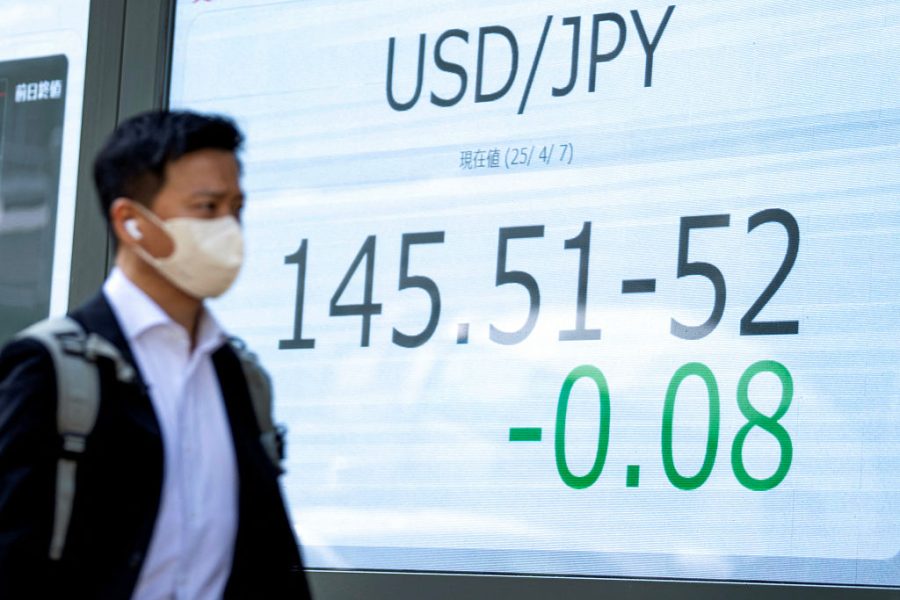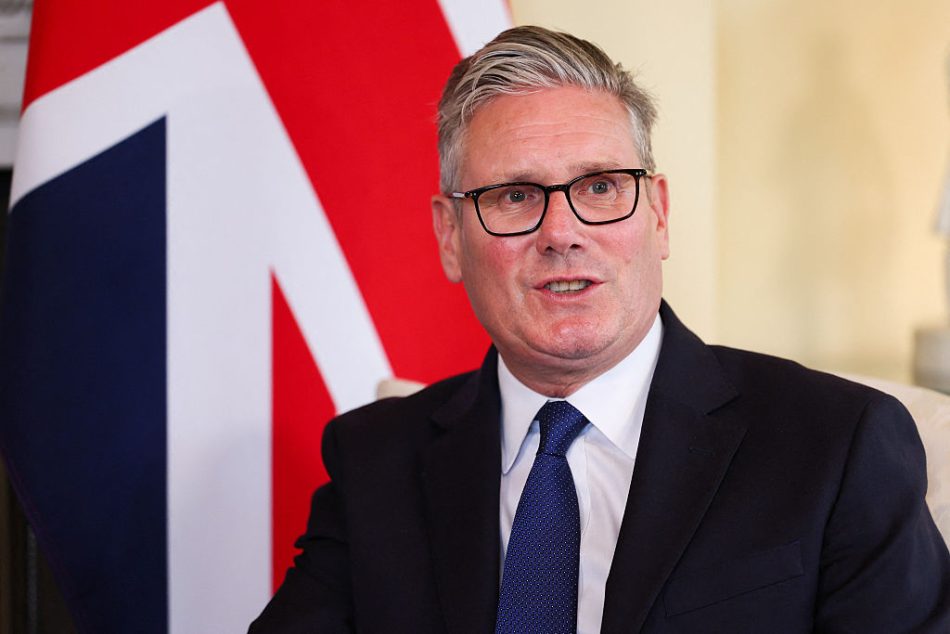‘National crisis’ was how Japanese Prime Minister Shigeru Ishiba described the fallout from President Trump’s ‘Liberation Day’ tariffs in a speech on Friday. That was strong language from the normally measured Ishiba, but was borne out by the bloodbath in the Nikkei stock exchange over the last few days of trading. Stock markets around the world have been battered, but Japan’s has been one of the worst. It plunged 2,600 points to close down a whopping 8 per cent today, the third largest fall on record.
Amongst the worst casualties were the Mizuho Financial Group, whose shares fell 10.6 per cent, and Mitsubishi, whose stock plunged by 10.2 per cent. Trading on futures was briefly suspended as circuit breaker limits were reached amid the carnage. Traders aren’t quite hurling themselves from office windows yet, but it has been a rough few days for the Japanese money men.
There is talk of a global slowdown tipping Japan into recession
The reason for all this mayhem? Cars. Japan employs nearly 6 million people – 8.3 per cent of the total workforce – in the auto industry, which accounts for 3 per cent of GDP. America is a critical market for this crucial national industry (Japan shipped 1.3 million cars to the US in 2024). With 25 per cent tariffs due to be imposed on Wednesday, and a similar duty to be levied on parts, there is an air of panic in the auto makers’ boardrooms and amongst policy makers.
No one knows quite what to expect, but a Nomura research institute analysis of the potential impact of Trump’s tariffs concluded that the changes could lead to a 0.7 per cent reduction in Japanese GDP over a year. There is talk of a global slowdown tipping Japan into recession. Shinichiro Kobayashi, chief economist of Mitsubishi UFJ Research, called the potential tariff war and trade frictions ‘the worst-case scenario’.
Adding to the financial shock is an emotional trauma which is developing, a feeling of ‘I thought we were friends’ betrayal. It seems that many in Japan believed there existed a kind of ‘special relationship’ with America that would have afforded some measure of relief from Trump’s global onslaught. Ishiba went on a charm offensive visit to Washington in February, bearing gifts and promising to vastly increase Japanese investment in the US, but to no avail.
Even the day after the tariffs were announced, some obviously still harboured hope of a reprieve. Chief cabinet secretary Yoshimasa Hayashi asked Washington for an exemption from the duties and pointedly reminded the US that Japanese automakers had invested over $60 billion (£47 billion) over the last four decades and created over 2.3 million jobs stateside. Again, this evidently had no effect.
The Japanese failed to read the room. On 2 April, Trump complained about the treatment of the US by ‘friend and foe’, adding that ‘in many cases friend is worse than foe’ – which may have been a veiled reference to Japan. In any case, Trump has had longstanding beef about Japan’s trade policies with the US, which long predates his political career. A bit of research would have unearthed this and indicated that little mercy could be expected.
Ishiba says he hopes to speak to Trump this week and is believed to be putting together a wide-ranging package of measures involving liquefied natural gas, cars, agriculture and national security on which to form the basis for negotiations. One problem for Ishiba, though, is that his own position is weak and he may not survive beyond Japan’s Upper House elections in July. Jeff Richards of Japan Today believes team Trump is well aware of this and may not be overkeen to deal with a leader potentially soon to depart. He also thinks there is no rapport whatsoever between the two men.
Therefore, unless President Trump is persuaded or forced to relent by internal dissent or a coordinated global backlash, it is likely that he will more or less get what he wants from Japan. Japanese automakers will just need to adapt to survive and, as so often in Japanese history – to borrow David Pilling’s phrase – bend adversity to their advantage.
They probably have the tools to do so. Japanese automakers operate 24 plants in the US and ramping up production in the States seems inevitable now (Mazda has already indicated they will do this). It won’t be easy, though. It is not as simple as just making more cars in the US. With parts, which sometimes make circuitous journeys around the world before reaching their final destination, also subject to tariffs, the global auto parts supply chain will need to be completely reorganised. This is a huge undertaking. There are already reports of US-branded parts being stockpiled.
The Nikkei is expected to remain volatile this week but, with Japan seemingly not prepared – or able – to hit back at the US, ought to stabilise. What might take longer to recover is the US-Japan relationship, which has been badly bruised. Japan is realising that ‘America First’ means exactly what it says – and that decades of careful alliance-building diplomacy count for precious little in Trump’s brave new business world.







Comments